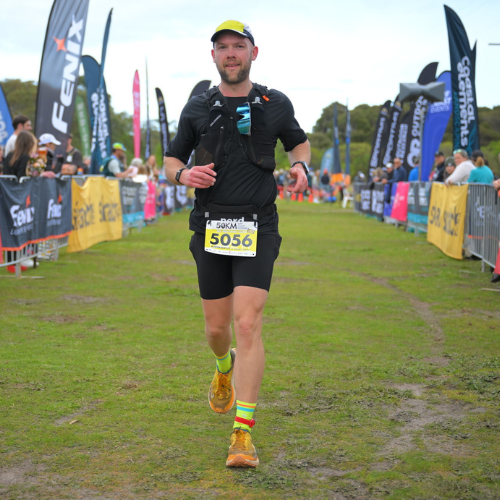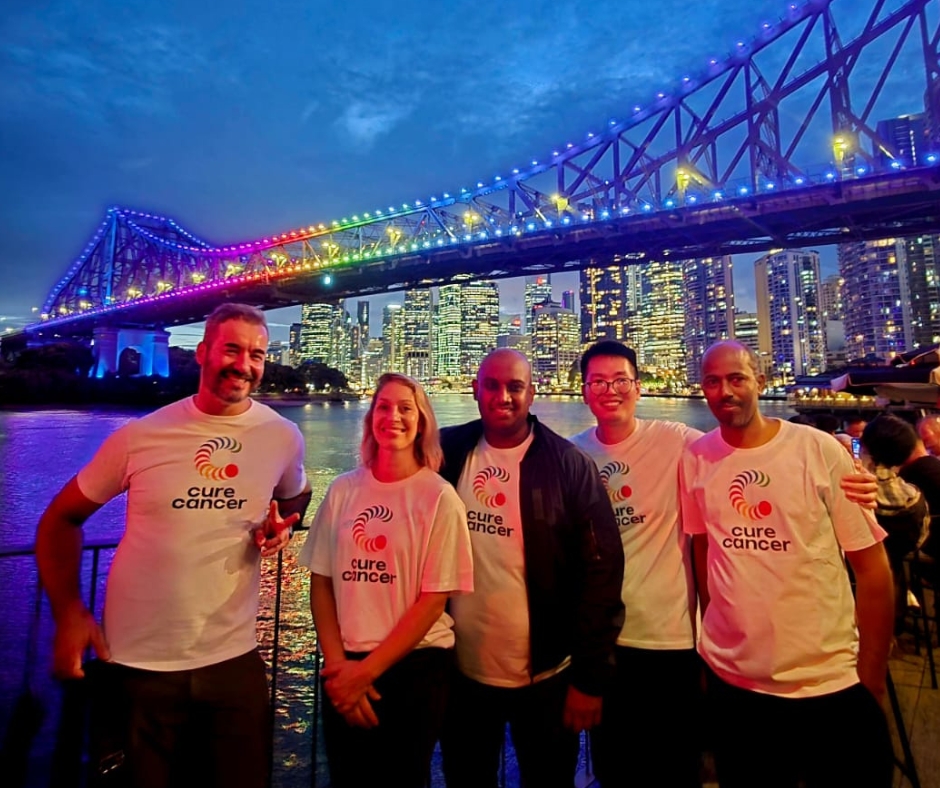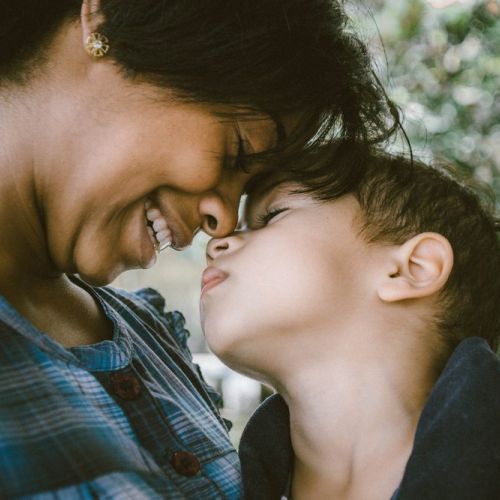Stamp Hao Lab: Where everyone's ideas matter
By Sylvia Lee | 14 June 2024
We spoke to Dr Marlene Hao, a 2020-2022 Cure Cancer grant recipient, and her collaborator Dr Lincon Stamp about the behind-the-scenes of being joint lab heads together at the University of Melbourne, and the importance of inclusivity at their young research lab.

More than a decade ago, Dr Marlene Hao and Dr Lincon Stamp met while working in Professor Heather Young's lab at the University of Melbourne. There, their shared passion for the enteric nervous system brought them together, eventually leading to the inception of the Stamp Hao Lab.
Known as ‘the second brain’, the enteric nervous system is the nervous system located in the gut. It is responsible for controlling the movement of contents through the gut and operates independently of the central nervous system. “This sounds like it’s far removed from cancer research,” says Marlene, “but we believe knowledge from our field will help find new targets for the treatment of brain cancer.”

Supported by her 2020-2022 Cure Cancer grant, Marlene and Lincon are vigorously studying the unique characteristics of enteric glial cells that protect them from developing aggressive tumours known as gliomas, unlike their brain counterparts. Their research delves into the genetic differences between gut and brain glial cells and explores the impact of environmental factors by introducing brain glial cells into the gut.
This groundbreaking work is central to their ultimate hope: finding better treatments for people living with brain cancer.
Defying odds: A young research lab is born

As joint lab heads, Marlene and Lincon have come a long way, but their journey hasn’t been easy.
Following the retirement of their supervisor and lab head, Professor Heather Young, Marlene and Lincon inherited her lab and team, officially becoming lab heads in 2019. “We didn’t have much money, but we were pretty fortunate to be a young lab starting with space and costly equipment that a lot of people don’t have as a start-up,” shares Lincon. “Although we were running the group, we were still considered too junior by some people to run the lab.”
As early-career researchers, they faced more scepticism and scrutiny than more established researchers when applying for grants. “Working together has really helped because it’s easy to get down about this stuff,” says Marlene. “But thanks to grants like Cure Cancer funding, we built enough momentum to get larger grants like the MRFF and the NHMRC, which I think is what signalled to a lot of the higher-ups that we can do this.”
“It felt like a real kick in the guts at the time, but we bounced back,” Lincoln adds. “Then we were given our knighthoods, and we’ve been running the lab successfully ever since.”
He continues, "We spend a lot of time writing grants and when we’re successful, it feels like a very big win. Because it means we can not only keep our jobs, but also keep our employee’s jobs and keep going for the students that we have in the lab. It's a huge relief and celebration for the whole team.”
Building an inclusive culture

Inclusivity is a cornerstone of the culture at the Stamp Hao Lab. Lincon, a proud member of the LGBTQIA+ community, emphasises the importance of being respectful of people’s identities, starting with something as simple as using their correct pronouns. “You're working with a really diverse cohort of students who have every right to be addressed by the pronoun that makes them feel themselves,” he explains. “In our department, there is zero pushback against positive things like promoting LGBTQIA+ inclusivity.”
“For IDAHOBIT Day (International Day Against Homophobia, Biphobia and Transphobia) on May 17 [in 2023], Lincon and I helped organise a morning tea, which had a great attendance, including our Head of Department and many senior professors, as well as students and staff,” says Marlene. “We fly the rainbow flag in our office and in our email signatures, which I hope is a visual reminder to anyone who identifies as LGBTQIA+ that we are supportive.”
The co-lab heads strongly advocate for cultivating a diverse team whose unique perspectives can drive research forward. “Research is creativity and to be creative, you need different points of view,” says Lincon. “We try to have a good balance of representation in the lab. Whether it's cultural, gender-related, socioeconomic, or personal experience with cancer, you may have different ways of approaching an experiment. You bring a lived experience that others in the lab might not have – and that’s a huge asset for us.”
You can learn more about Dr Marlene Hao and Dr Lincon Stamp’s lab here.










